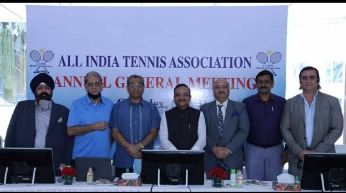New Delhi, Sep 5 (UNI) The Start-Up Village Entrepreneurship Programme (SVEP) has made an impressive progress and has extended business support services and capital infusion to 153 blocks of 23 states, as of August 2020.
“Around, 2,000 trained cadre of Community Resource Person-Enterprise Promotion (CRP-EP) are providing services to rural entrepreneurs and as on August 2020, around 100,000 enterprises are supported by them. Entrepreneurship Development Institute of India (EDII), Ahmedabad is the technical support partner of SVEP,” a release from Ministry of Rural Development said on Saturday.
“With an objective to support the rural poor come out of poverty, supporting them setup enterprises and provide support till the enterprises stabilize, SVEP focusses on providing self-employment opportunities with financial assistance and training in business management and soft skills, while creating local community cadres for promotion of enterprises,” it said.
The SVEP is implemented by Deendayal Antyodaya Yojana –National Rural Livelihoods Mission (DAY-NRLM), Ministry of Rural Development, as a sub-scheme since 2016.
SVEP addresses three major pillars of rural start-ups namely – finances, incubation and skill ecosystems. Activities under SVEP are strategically designed to promote rural enterprises, one of the key areas is to develop pool of community resource persons – enterprise promotion (CRP-EP) who are local and support entrepreneurs setting-up rural enterprises.
Another key area is to promote the block resource center (BRC) in SVEP blocks, to monitor and manage the community resource persons, appraise SVEP loan application and acts as the repository of enterprise related information in the concern block. BRCs play the role to support sustainable revenue model to operate effectively and independently.
“During the initial years of implementation, the SVEP focused on mobilising rural communities to setup and strengthen the institution structures, invest on training and capacity building on business management aspects for the BRC members, created pool of CRP-EPs and provided them intensive training, supported the entrepreneurs to scale up their existing enterprises as well as establish and support the new enterprises,” the release said.
“A mid-term review of SVEP which was conducted in September 2019 by Quality Council of India shows about 82 per cent of the sampled entrepreneurs across the blocks reported being from SC, ST and OBC categories which signifies social inclusion – one of the pillars of NRLM,” it said.
“Seventy-five per cent of the enterprises were owned and managed by women and average monthly revenue of enterprises was Rs 39,000-Rs 47,800 in case of manufacturing, Rs 41,700 in case of services and Rs 36,000 in case of trading. The study also shows that about 57 per cent of the total household income of the entrepreneurs is through SVEP enterprises,” it said.
SVEP promotes both individual and group enterprises, set-up and promote enterprises majorly on manufacturing, trading and service sectors. The program invested largely on building the capacities of the entrepreneurs to run the businesses profitably based on the local demand and eco-system.
The CRP-EPs are certified and provides business support services to the entrepreneurs. Investments are also made under SVEP on use of ICT to create standard E-learning modules for minimizing the transmission loss in technical aspects like business plan and profit and loss account preparations.
As the country fought the coronavirus pandemic (Covid-19), women SHGs of DAY-NRLM stepped up as effective frontline responders and reached the last mile ensuring an immediate relief to the rural communities and the most vulnerable population.
“These SHG women shouldered the responsibilities of the situation and emerged as a strong task force in producing several quality products like masks, protective gear kits, sanitizers and hand wash across the country. Products were procured and distributed by the local administration to various stakeholders. While addressing the need, these SHG rural women entrepreneurs set up an example of themselves and earned an additional income,” it said.
“As on August 14, 2020, around 318,413 SHG members are involved in the manufacturing of face masks, protective kits and sanitizing products. Women SHG members in 29 states have produced around 23.07 crore face masks, 1.02 lakh litres of hand wash and over 4.79 lakh litres of sanitizer resulting in an estimated business turnover of Rs 903 crore. While most of the businesses in the country were at halt during the lockdown, these rural women made an estimated additional income of around Rs 29,000 each,” it said.
Face masks produced by these women SHGs have been the most successful product during the Covid-19 lockdown period involving 2.96 lakh SHG members (59 thousand SHGs) which has produced 23.37 crore face masks in almost 150 days generating an estimated business volume of Rs 357 crore and are being supplied to masses through government procurement.
“Some of the women SHGs were involved in running community kitchens, serving cooked meals to over 5.72 crore vulnerable community members,” it added.














